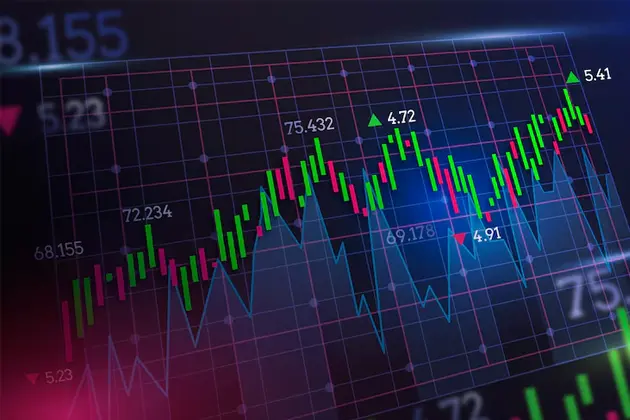Despite the war-like situation between Iran and the United States, the US stock market is experiencing some unexpected turns, with market movers still holding their positions amid the economic turmoil. DOW, S&P 500, and NASDAQ have witnessed significant growth in their market capitalization. DOW has an index of 42,581.78 in the pre-market with an additional charge of 374.96 and a growth rate of 0.89% in the US stock market today. S&P 500 opened the market with an index of 6,025.17 and later experienced an additional charge of 57.33 with a growth rate of 0.96%. The NASDAQ Index is 19,630.97 with a change of 183.56 and a growth rate of 0.94%.
As a result of the war situation, oil is rapidly being sold off, and stocks are being railed against after Iran dropped missiles on US bases in Qatar and Iraq. In the stock market, traders are betting on Iran’s unwillingness to retaliate against US forces, and they hope this will be the extreme Iranian response. The stock market investors are expecting a spike in oil prices, damaging the US economy and raising costs for consumers and businesses.
The scenario reveals that the rise in US stocks is the result of a decline in oil prices. US crude slumped 7.2% to $68.51 per barrel. It is the biggest one-day drop since early April and the worst day over the past three years for oil pricing in the USA. Since June 12, it is for the first time that the oil price has traded below $70. A day before Israel began launching strikes at Iran’s nuclear facilities was a dramatic turnaround from the spike of 6% to as high as $78.50 per barrel. The DOW rose by 0.89% after falling earlier in the afternoon. The S&P 500 gained 0.96%, and the NASDAQ was 0.94% higher in the stock market today.
“I think what you’re seeing in many ways is a symbolic attack by Iran.” Ten missiles are not that many. Everyone is dangerous; everyone could kill or maim many Americans. But hopefully, at this point, we’re not going to see further responses by the Iranians,” Kirk Lippold, former commanding officer on the USS Cole, told CNN.
Conversely, Iran launched several missiles against locations across Israel on June 13 in retaliation for Israeli strikes.
At the moment, Iranian officials gave Qatar an advance warning regarding an upcoming attack before launching missiles toward a US military base located there. According to a source, this coordination was intended to minimize casualties and preserve an off-ramp.
The Trump administration expected retaliation after the US attacks, and the president does not want more military engagement in the region. A senior official from the White House shared with CNN on Monday.
A Challenging Act
Investing in the US share market is like spinning plates while riding on a bowling ball that is unicyclically balanced. Traders must contend with rapidly changing tariffs, rate uncertainty, mixed economic signals, and an accelerating conflict in the Middle East.
Through the conventional wisdom, one might assume that the historic strikes of the US on three Iranian nuclear facilities would send stocks lower and oil prices higher. This would be the result of the fear of retaliation and a potential Iranian blockage of the Strait of Hormuz, the critical shipping lane for about the capacity of flowing one-fifth of the world’s oil supply.
This balancing act is maintained by the investors demanding clarity about what happens. If both the Israeli strikes and the US strikes are largely over, and the Iranian retaliation is muted, this could be a positive sign for investors, lessening the volatility and the threat of a nuclear-armed Iran. Particularly, Oil supplies from Iran are cut off to the West by combined with a growing trade war, which could ignite inflation and a global recession.
“As of now, there’s a certain symbology to this. “If they (Iran) can control their reaction, they wish for an offramp to some degree, but that’s something that remains to be seen. … If we decide to respond more forcefully to this, all bets are off at that point.” Cedric Leighton, CNN military analyst and retired US Air Force Colonel, said on CNN Monday afternoon.
Safe-haven trades were muted in this time of global strife. Gold rose by 0.2% to $3,390 a troy ounce. The dollar currency fell by 0.3% on Monday afternoon, which was 1% higher earlier. The dollar tends to rally in times of global unease and conflict, but questions were raised if that would happen again under Trump’s “America First” policies.
The CEO Views is an informative source of a media platform that covers various current news and articles on the world economy. As a technology and business magazine, it is a trusted partner for industry peers to connect and keep themselves involved.










